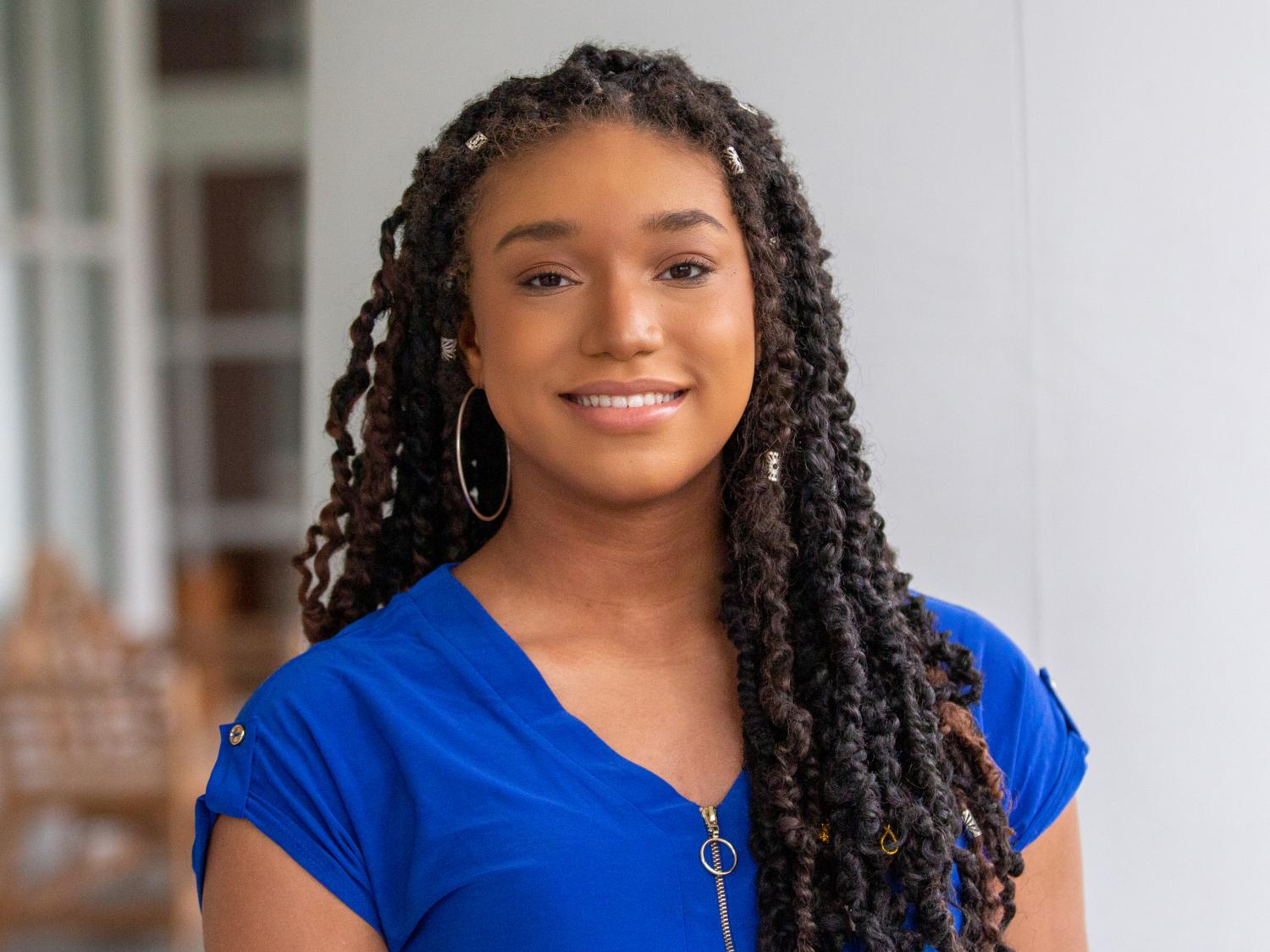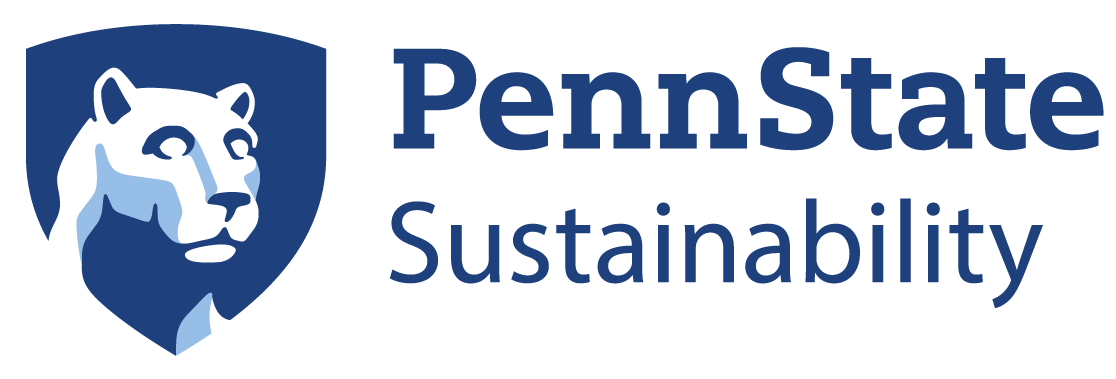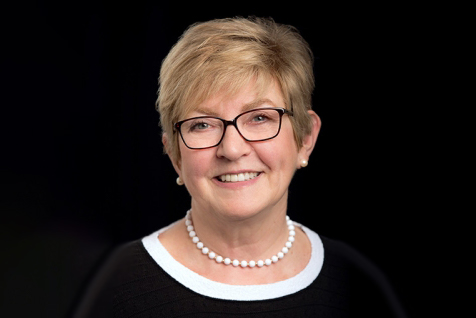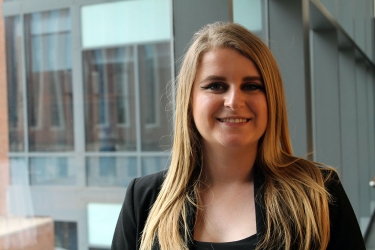Nyla Holland, Graduate Student in Public Policy with a specialization in Education Policy, Environmental Justice Intern – “Mapping a Just and Sustainable Future for Pennsylvania”
Nyla Holland is a Penn State graduate student in Public Policy with a specialization in Education Policy. In her undergrad, Holland also attended Penn State and graduated in the spring of 2021 with a bachelor’s degree in Political Science and African American science. Holland has been doing work at the Sustainability Institute as an Environmental Justice Intern under the supervision of Peter Buck.
Why is sustainability important to you?
I’ve always resonated with sustainability as defined by the UCLA Sustainability Committee, which is “the integration of environmental health, social equity, and economic vitality in order to create thriving, healthy, diverse, and resilient communities for this generation and generations to come. The practice of sustainability recognizes how these issues are interconnected and require a systems approach with the acknowledgment of complexity.” While trying to live a life of service, I found that I am motivated by making positive impacts on others’ lives. Especially in doing work where you lay foundations and don’t necessarily get to see it come to fruition. I could only hope that those who come after me have a more just and positive experience. At the root of sustainability is recognition of how the past impacts the present and how the present impacts the future.
What drew you towards pursuing work in sustainability and becoming an Environmental Justice Intern?
I am someone personally impacted and intrigued by environmental justice. I learned that while sustainability is the more known issue in the social landscape, is it very linked to environmental justice and I wanted to explore that relationship more.
What do you do as an Environmental Justice Intern?
I met with other students and student groups to discuss environmental justice and how they can learn more about it. I helped organize the Colloquium on the Environment and worked on a mapping project that shows environmental injustices across Pennsylvania. With that project, I presented our work to several different groups.
Can you talk a bit about your “Mapping a Just and Sustainable Future” project?
We used ArcGIS to map environmental exposures and pollutants against different demographics to see what census tracts are considered environmental justice areas. Our hope with the map is to publish an accessible and relevant tool for regular folks that will also pressure legislators to pursue solutions.
What was your undergrad major and work?
I majored in Political Science and African American Science. I did a lot of research on disparities within education, Black politics as well as Black American history. In the extra-curricular space, I was heavily involved in Black Caucus and the NAACP, trying to create better outcomes for students of color, as well as bringing students together socially. In different academia/activist spaces, I helped to change the student code of conduct to better address instances of hate speech, push for justice for Osaze Osagie, and make environmental justice a more well-known topic on campus.
What aspects of sustainability does your work focus on the most?
Looking at the UN’s 17 Sustainable Development Goals, my work focused primarily on “good health and well-being”, “reduced inequalities”, “peace, justice, and strong institutions”, and “partnerships for the goals”. Social equity is a crucial piece.
What past or upcoming sustainability projects are you most proud of/excited for?
I am very proud of the Institute’s Colloquium on the Environment that I helped organize. The Colloquium featured the Father of Environmental Justice, Dr. Robert Bullard. Bringing so many folks originally interested in sustainability into the Environmental Justice world was very fulfilling and hopeful.
What do you hope are the impacts of your work in the future?
I hope to reduce gaps in negative environmental exposures so that it positively impacts marginalized communities’ health and happiness. I hope that I can inspire more people to look at their own work through a lens of equity. I hope that neighborhoods like the one I grew up in will look and feel like they would if inequities didn’t exist.
What are sustainable practices you incorporate into everyday life?
As for the more basic things, I try my best to recycle, save energy at home and in my workspace, use reusable bottles, give my siblings hand-me-downs instead of throwing old clothes away. But more philosophically, I try to make decisions through an equitable lens. For example, I ask myself, are there younger folks who should have a say in the work I’m doing? How can I bring them in? How can I pass off an opportunity to someone who needs it more? Also, I’m currently an assistant teacher, so I try to instill sustainable values in the way I teach and manage my classroom.
Do you plan on working in sustainability in the future? What do you want to do?
I’m not entirely sure. I would love to make forgotten neighborhoods like mine more sustainable, green, and involved. I’m also interested in helping to elect people that will put their money where their mouth is when it comes to funding sustainable projects that help those who most need it.
Imagine it’s 20 years in the future and Penn State and our communities have become more sustainable and resilient. What does that look like to you?
I hope that we no longer have to be resilient. That the conditions we are in are not treacherous and we don’t need to overcome the possibility of burning out. In my experience, being resilient is not fun. Penn State would look a lot better to me if those who face the most issues are the ones structurally and financially empowered to fix them. The work of sustainability wouldn’t be placed on a few, but instead a shared burden. Sustainable choices would be less optional, but also more attainable.





